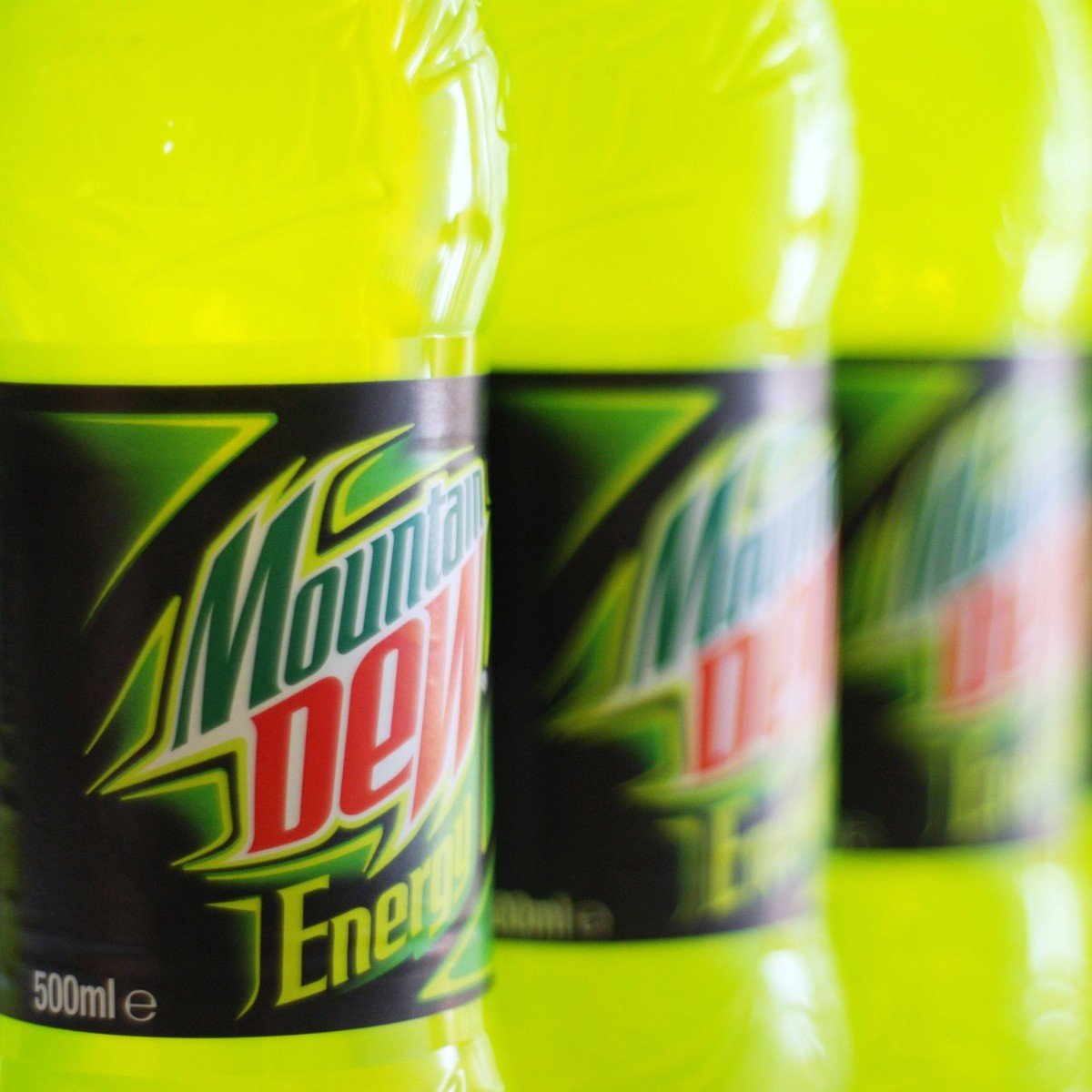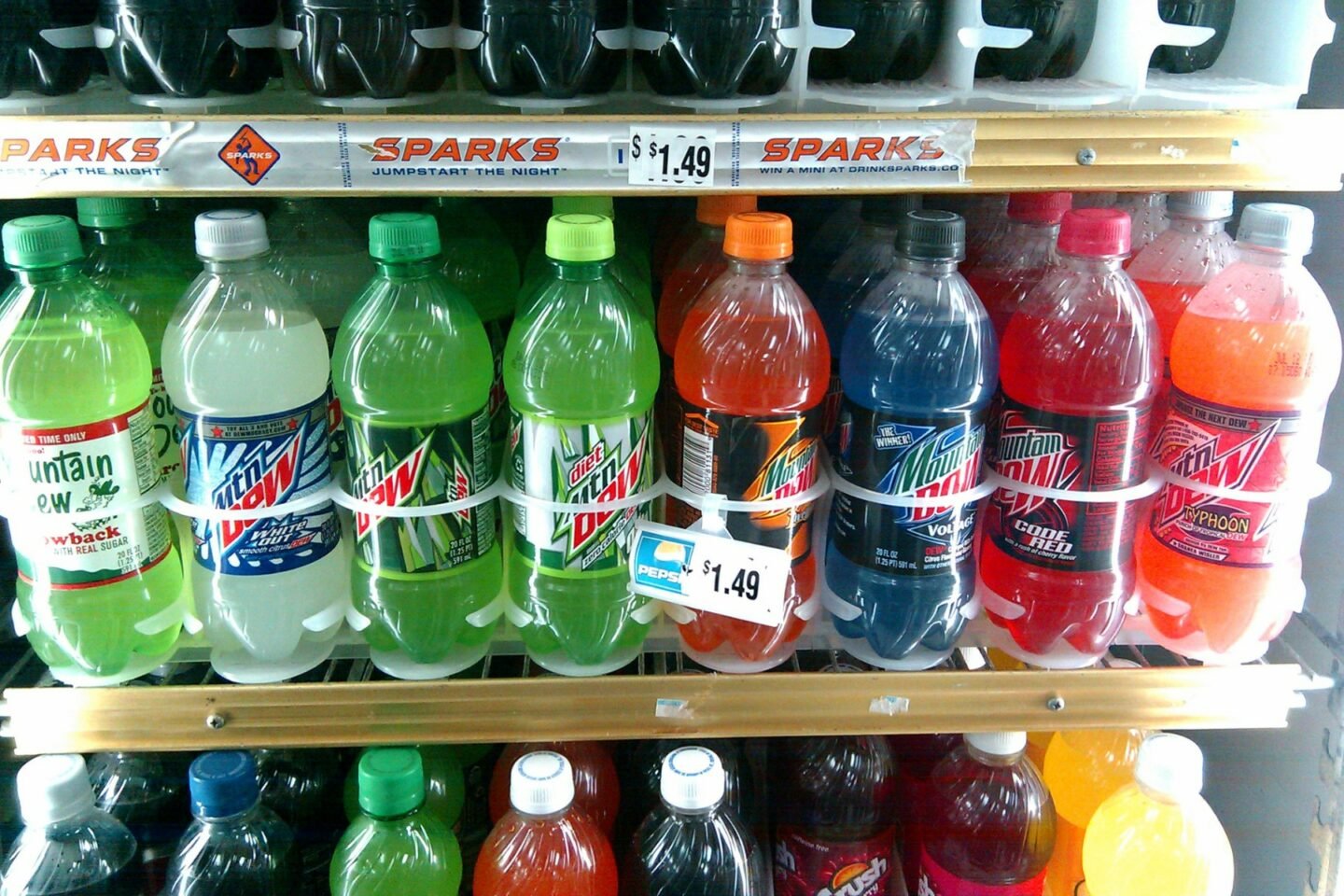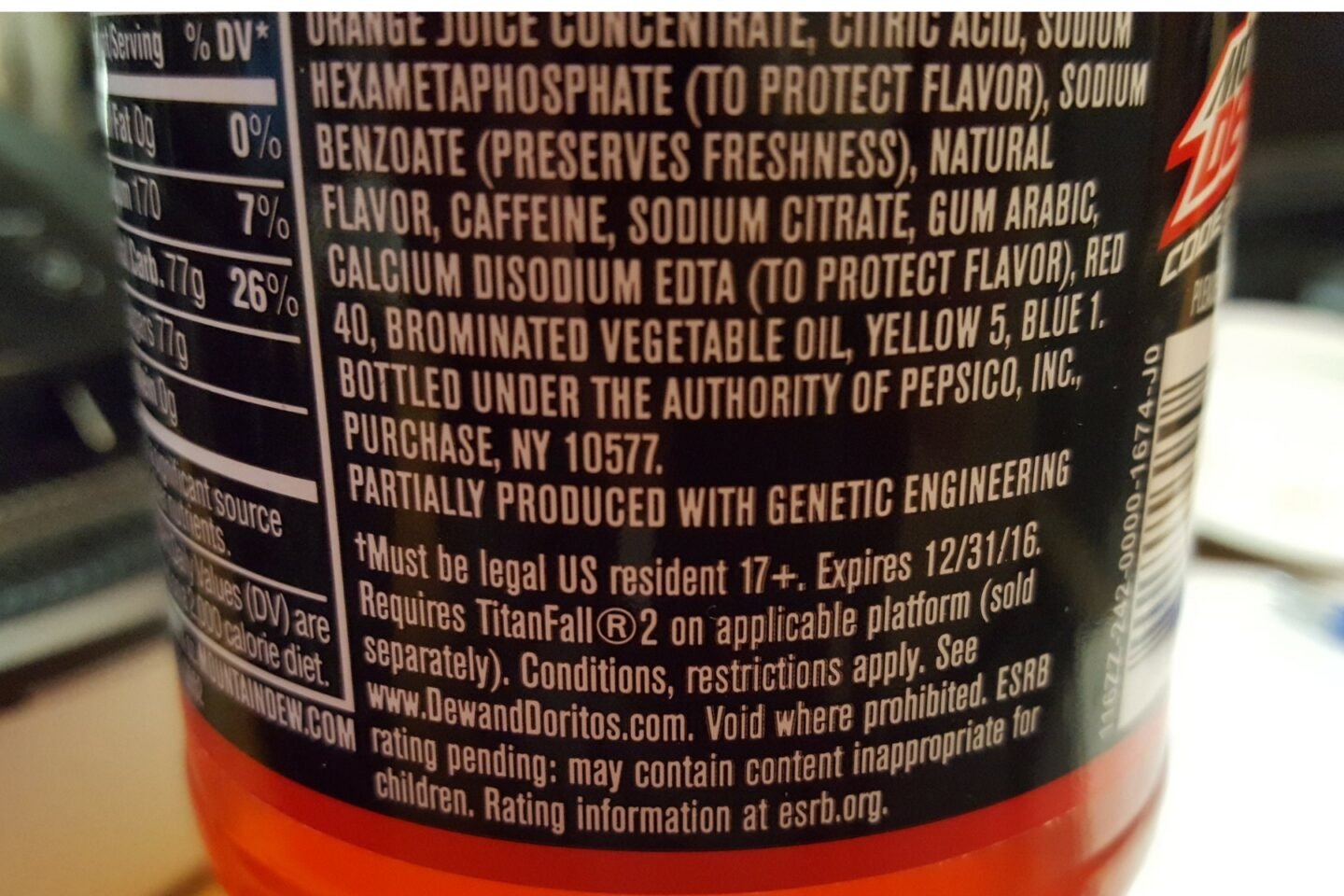Mountain Dew (Mtn Dew) is one of the most popular sodas in the world, but it also has the most sugar, which is bad for your health if you drink it often.

Mtn Dew is bad for your health as it contains no essential nutrients, increases the risk of developing diabetes, impairs brain function, increases the risk of developing a stroke, and disrupts your eating habits.
Read on as I explain why you should not be drinking Mountain Dew often, with scientific studies to back the claims.
Table of Contents
What is Mountain Dew and What's in It?
Mountain Dew (Mtn Dew) is a carbonated soft drink made by PepsiCo. It was first introduced in 1948 and has been popular ever since.
The drink is bright yellow-green in color, has a distinct citrusy flavor, and is one of the most popular soft drinks in the United States that you can easily find in convenience stores, supermarkets, and fast-food restaurants.
The main ingredients in Mountain Dew are carbonated water, high fructose corn syrup, concentrated orange juice, citric acid, natural flavors, sodium benzoate, and caffeine.
High-fructose corn syrup sweetens the drink, while concentrated orange juice and citric acid provide a distinct citrus flavor. Also, regular Mountain Dew has a unique taste thanks to its natural flavors, and sodium benzoate and caffeine are important for keeping the drink fresh and giving you energy.
Is Mountain Dew Bad For You?
The quick answer is yes; sugary and carbonated drinks are bad for your health. Mountain Dew doesn't have any essential nutrients, but it does have a lot of sugar, caffeine, and other things that are bad for your health.
In the next section, I will explain why you should not be drinking Mountain Dew regularly, so keep reading.
Top 5 Reasons Why Mountain Dew is Unhealthy

1. Mountain Dew does NOT provide nutrients.
Mountain Dew contains no essential nutrients, and people often drink it for its flavor and caffeine content. The beverage contains several ingredients: water, high fructose corn syrup, orange juice concentrate, citric acid, natural flavors, sodium benzoate, and caffeine.
According to its nutrition facts, a 22-oz can of Mountain Dew contains a whopping 77 grams of added sugar, which is twice the allowed daily sugar intake.
Although Mountain Dew contains minute amounts of vitamins and minerals such as vitamin C, niacin, and vitamin B6, none are essential nutrients the body needs to function.
2. Mountain Dew increases risk for diabetes.
About 10.5% (34.2 million) of the US population has diabetes. Although diabetes may seem common, it is one of the leading causes of death worldwide and often leads to more serious complications such as kidney failure, heart disease, and nerve damage.
Mountain Dew has the highest sugar content among flavored sodas, making it detrimental to people with diabetes or at risk of developing one.
A study from the University of Glasgow found that drinking sugary drinks like sodas is to blame for the rise in the number of people getting diabetes around the world.
Not only do sugary drinks increase blood sugar levels, but they also result in weight gain, increasing the risk of diabetes. Moreover, Mountain Dew is a high-calorie drink at 290 calories per 22 oz.
3. Additives in Mountain Dew impair brain function.
Sodium benzoate is one of the many food additives used in sodas such as Mountain Dew. It is a white crystalline powder with a faint, sweetish taste that is frequently used to prevent food spoilage.

In a 2018 study, researchers found that sodium benzoate impairs motor functions, which leads to memory loss and impaired motor coordination, and affects the chemical processes in the brain, which could lead to more serious health issues.
Moreover, although caffeine helps many people function and be more productive, studies show that prolonged use affects brain function, which explains why you struggle to sleep when using caffeine more often.
However, caffeine intake disrupts more than just your sleep cycle. It affects other functions in your brain, causing an increased risk for memory loss and worsening other severe conditions such as Alzheimer's disease, depression, epilepsy, and schizophrenia.
4. Carbonated drinks increase your risk of having a stroke.
Studies show that soda consumption increases the risk of developing stroke. Although more research is needed to determine the link between soda and stroke risk, data collected shows that people who drink at least one soda per day are more likely to develop stroke within a decade.
5. Sugary drinks disrupt your eating habits.
Sugary drinks can have a significant effect on our eating habits. Consuming large amounts of sugary drinks can lead to increased hunger, cravings for more sugary drinks, and a lack of satisfaction with other food choices.
Studies have shown that drinking sugary drinks makes you eat more calories and makes you more likely to gain weight or become obese. As sugary drinks often contain empty calories, they can also lead to nutrient deficiencies.
Is Mountain Dew Zero Sugar Healthy?
While Mountain Dew Zero Sugar contains no sugar, that does not make it a healthy drink. A healthy drink should have vitamins and minerals that your body needs. Neither the original Mountain Dew nor Mountain Dew Zero Sugar do.
Also, Mountain Dew Zero Sugar still has caffeine and other unhealthy ingredients, so it's not a good choice.
Top 5 Healthier Drinks as Alternatives

1. Water
Water is the best option for quenching your thirst. It does not contain calories or additives and helps your cells get the hydration they need. You can also drink sparkling water if you have one, but plain water should be enough.
2. Iced Tea
Iced tea is an excellent way to get caffeine from a healthier source. Adding ice enhances its taste, making it comparable to cold sodas. To make iced tea healthier, use alternative sweeteners, such as honey and molasses, or artificial sweeteners, such as aspartame.
3. Fruit Juice
Fruit juices are an excellent way to boost hydration and get nutrients simultaneously. They are rich in vitamins and minerals, as well as fiber that aids in digestion.
If you don't have time to make a fresh batch at home, you can easily hop into stores and look for ones made with real fruit juice and no added sugar.
4. Coconut Water
Coconut water is a much healthier alternative to soda as it is a natural source of electrolytes, vitamins, minerals, and antioxidants. Unlike Mountain Dew soda, it is low in sugar, calories, and sodium, making it an excellent choice for those looking to stay hydrated without added sugar or calories.
Coconut water also contains enzymes and other plant compounds that can support digestion and boost immunity. It is a refreshing, hydrating beverage that can help you stay healthy and energized.
5. Smoothies
Smoothies are an excellent way to quench your thirst while boosting your immune system. It's a great soda alternative for kids who don't enjoy drinking water or fruit juices.
Related Questions
No. The absence of added sugar does not make Diet Mountain Dew or any diet soda healthy, as it still contains food additives and caffeine.
No, Mountain Dew Code Red is not healthy. It contains 170 calories, 46 grams of added sugar, caffeine, and other food additives that are harmful to one's health.
Any energy drink (such as Red Bull) and soda contain high levels of sugar and caffeine, making both equally unhealthy for consumption.
According to a statement from the company, brominated vegetable oil is no longer in the main line of Mountain Dew flavors. However, the original Mountain Dew still contains vegetable oil.

Leave a Reply